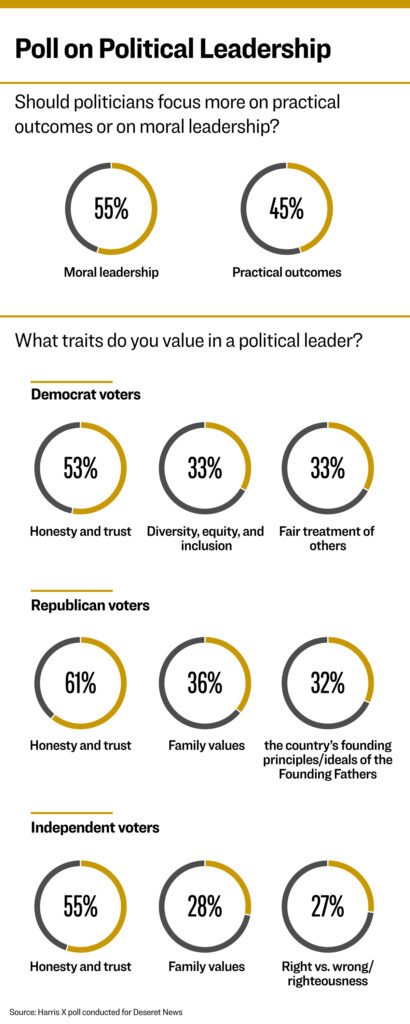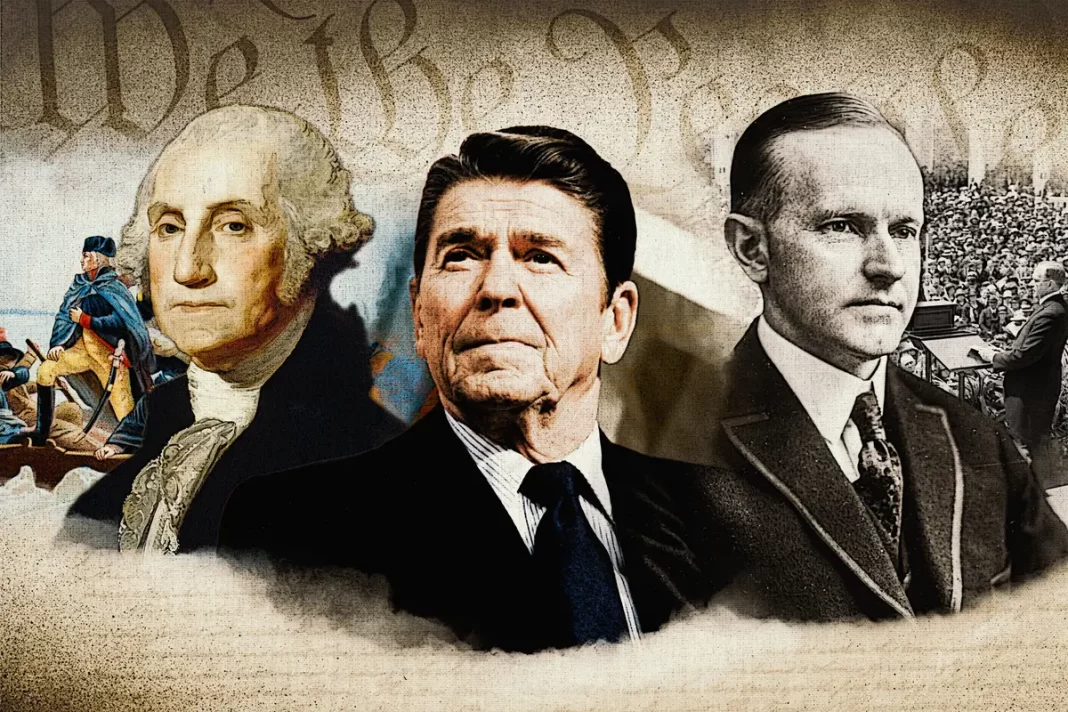Why aren’t basic virtues, which distinguished many of our past leaders, part of the national conversation anymore?
A national poll conducted by Harris X in the summer of 2023 found that a majority of Americans thought that politicians should focus more on moral leadership than on practical outcomes. When asked a second question “What do you most closely associate with moral leadership?” a majority of Democrats, Republicans, and Independents selected trust and honesty for the top of the list.

Further agreement ended there. From the list provided by the pollsters, Democrats most closely associated moral leadership with DEI (diversity, equity, and inclusion) and fair treatment of others. Republicans selected family values and the ideals of the Founding Fathers. Independents selected family values for their second choice of association with moral leadership, then chose right vs. wrong for the number three slot.
So yes, Americans want moral leaders. Where we disagree is in our definition of moral.
What is striking about this survey are the absence of moral qualities that until recently would have served to define any virtuous American. Like those polled, earlier generations would have agreed that ethics and vision should guide practical decisions, and they, too, valued honesty and trustworthiness in others. But while they would have agreed that treating others fairly or that honoring the family were worthy measures of character, they would have first considered some more basic virtues that would qualify as admirable in a public figure.
Let’s take a look at four of them.
The Courage of Conviction
“Whatever happens now I owe my life to God and will try to serve him in any way I can.”
Two weeks after nearly dying in an assassination attempt on March 30, 1981, Ronald Reagan wrote those words in his diary. During his time in the hospital, he had shown such great courage, laced with wit and humor, that the Speaker of the House, Democrat Tip O’Neill, echoed the sentiments of many Americans when he said in admiration, “The President has become a hero.”
In “Tear Down This Wall: A City, a President, and the Speech that Ended the Cold War,” Reagan biographer Romesh Ratnesar recounts the president’s bravery following this shooting, including his diary entry, then profiles a different sort of courage the president displayed six years later.
By Jeff Minick









